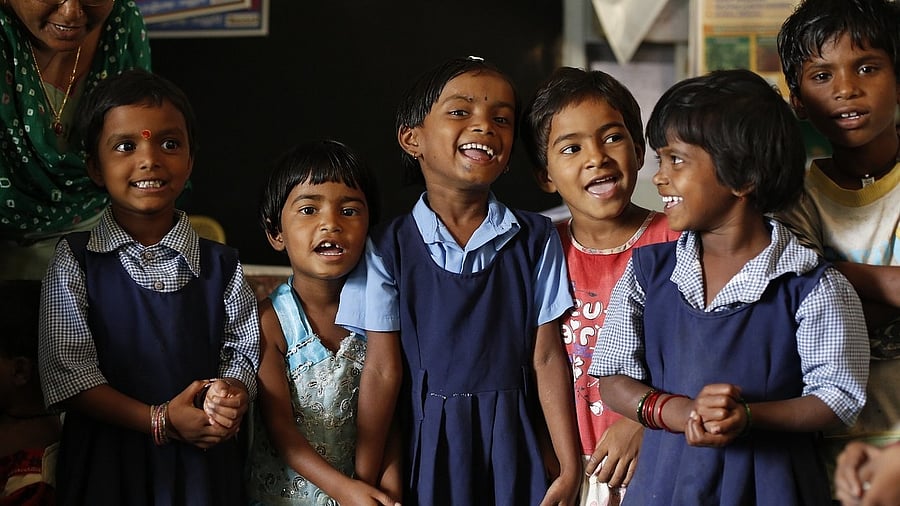
Representative image.
Credit: Pixabay Photo
The Child Rights Index in Karnataka 2023, released by the Institute for Social and Economic Change and the Karnataka State Commission for the Protection of Child Rights, offers a sobering assessment of how well the state safeguards its youngest citizens. The findings reveal significant progress in some districts but alarming gaps in others, revealing that child welfare remains unevenly distributed. Karnataka ranks 10th among 30 states, indicating a moderate performance. Districts such as Udupi, Mandya, Dakshina Kannada, Kodagu, and Bengaluru Rural lead the rankings, supported by stronger outcomes in education, health, and nutrition. In contrast, Kolar, Yadgir, Raichur, Ballari, and Dharwad continue to struggle across key indicators. In several Kalyana Karnataka districts, more than 70% of children are anaemic, pointing to chronic underinvestment in nutrition and persistent social deprivation that entrenches intergenerational poverty.
The most disturbing revelation concerns Bengaluru (Urban), which ranks among the worst districts in Right to Protection and is identified as the most unsafe for children. Crime against children is seven to eight times higher than elsewhere, as indicated in the POCSO and trafficking cases, and the vulnerabilities of migrant and homeless children. Rapid urbanisation, population density, and weak enforcement have created an environment where children face heightened exposure to harm. The findings carry lessons that require urgent attention. Child protection cannot be addressed in isolation. Exploitation and crime are deeply linked to poor schooling outcomes, poverty, and gender inequality. Backward regions need focused investments in nutrition, maternal care, and early childhood services, while urban centres require a tailored protection strategy that responds to specific risks.
A stronger government response must begin with expanding child-friendly policing, strengthening the 1098 helpline, and deploying specialised protection units in high-crime districts. Bengaluru requires targeted programmes for migrant and street children. Simultaneously, the Kalyana Karnataka region needs enhanced allocations to strengthen Integrated Child Development Services (ICDS). Education and protection must work together through stricter enforcement of child labour and child marriage laws, ensuring rescued children return to school and tracking out-of-school children in low-performing districts. The revised Karnataka State Child Protection Policy (2023) provides a sound framework, but its impact will depend on implementation. A state’s progress is measured not by economic indicators but by the everyday safety and dignity it guarantees its children. Karnataka now has the data and tools; what it needs is the political resolve to act.
